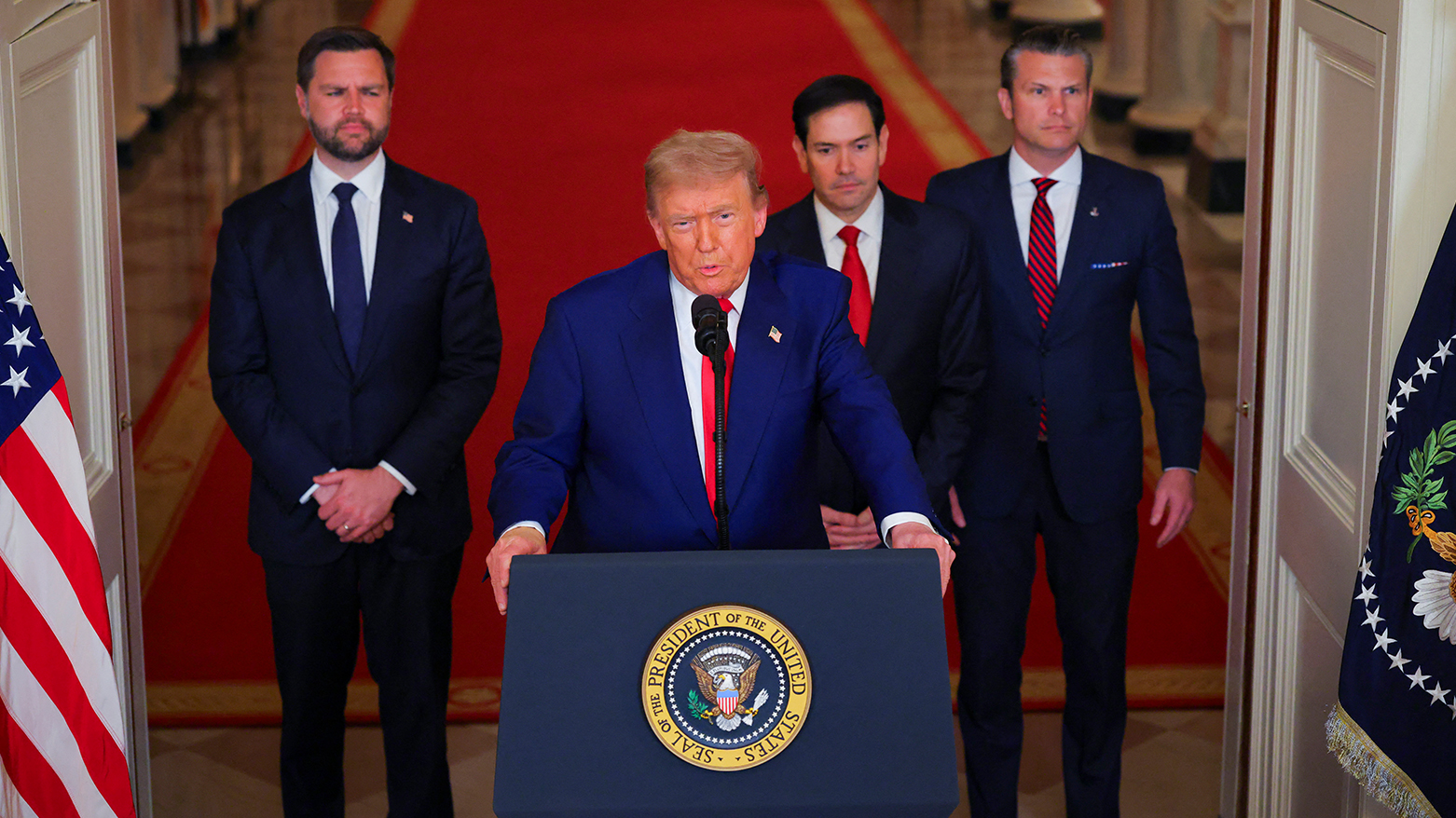Congress to Receive First Classified Briefing on Iran Strikes as Debate Intensifies Over Trump’s War Powers
CIA Director John Ratcliffe, Secretary of State Marco Rubio, and Defense Secretary Pete Hegseth are expected to brief senators on Thursday.

ERBIL (Kurdistan24) — Top Trump administration officials are set to brief U.S. senators in a classified session on Thursday, amid mounting questions about the legality and effectiveness of President Donald Trump’s decision to bomb three Iranian nuclear sites earlier this month, according to a report by the Associated Press (AP).
The briefing, originally scheduled for Tuesday but delayed, comes as the Senate prepares to vote on a resolution that would require congressional approval for any future military action against Iran. Lawmakers from both parties have expressed concern over the president’s unilateral decision to authorize the strikes without consulting Congress.
“Senators deserve full transparency, and the administration has a legal obligation to inform Congress precisely about what is happening,” said Senate Democratic Leader Chuck Schumer, who criticized the delay of both Senate and House briefings. A similar classified session for House lawmakers is now set for Friday.
CIA Director John Ratcliffe, Secretary of State Marco Rubio, and Defense Secretary Pete Hegseth are expected to brief senators on Thursday. Director of National Intelligence Tulsi Gabbard, who had been scheduled for Tuesday’s session, will not attend, according to a source familiar with the planning.
Conflicting Assessments Over Strike Impact
The closed-door meeting could become contentious as newly leaked assessments have cast doubt on the strike’s long-term effectiveness. A preliminary U.S. intelligence report found that Iran’s nuclear program had been delayed only by several months, a finding that contradicts Trump’s and Israeli Prime Minister Benjamin Netanyahu’s claims of having “completely and fully obliterated” Iran’s enrichment capabilities, according to two sources familiar with the classified findings who spoke on condition of anonymity.
However, both Gabbard and Ratcliffe issued public statements on Wednesday defending Trump’s narrative. Gabbard said on social media that “new intelligence confirms what @POTUS has stated numerous times: Iran’s nuclear facilities have been destroyed,” adding that rebuilding the three targeted sites could take “years.”
Ratcliffe echoed those assertions in a statement released by the CIA, stating that Iran’s nuclear program had been “severely damaged” and citing “a historically reliable and accurate source/method” confirming the destruction of several key facilities.
Congress Divided Over Presidential War Powers
The strike has reignited a longstanding debate over the president’s war-making authority. Some lawmakers argue Trump violated the War Powers Act, which mandates congressional consultation for significant military operations. The Senate resolution scheduled for vote this week would require any future action against Iran to be formally approved by Congress.
Despite the criticism, many Republicans have rallied behind the president. House Speaker Mike Johnson went as far as to question the constitutionality of the War Powers Act itself.
“The bottom line is the commander in chief is the president,” Johnson told reporters. “The military reports to the president, and the person empowered to act on the nation’s behalf is the president.”
The U.S. strikes, carried out by B-2 bombers using bunker-buster munitions, targeted three Iranian nuclear facilities and came during the height of a 12-day conflict between Iran and Israel. A fragile ceasefire brokered by Trump took effect Tuesday and has so far held.
As the classified briefing unfolds, the administration will be under pressure to reconcile diverging intelligence assessments and offer a clearer justification for one of the most consequential military decisions of Trump’s presidency.
